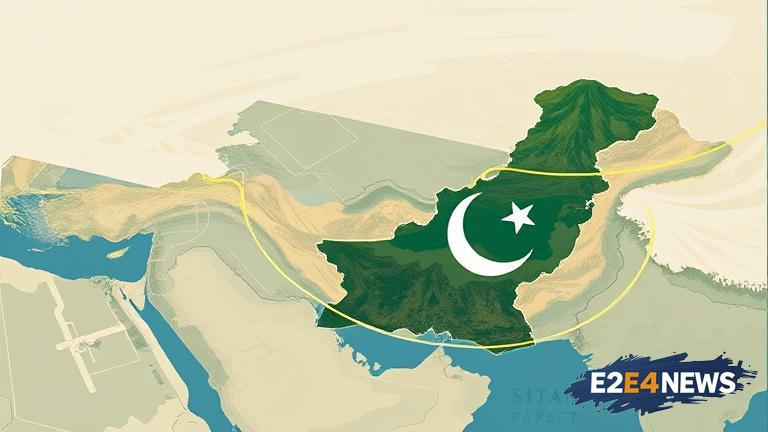Pakistan’s economic corridor, a key component of the China-Pakistan Economic Corridor (CPEC), is at a critical juncture. The project, which aims to connect China with the Arabian Sea through a network of roads, railways, and pipelines, has the potential to transform Pakistan’s economy. However, the project is also facing numerous challenges, including bureaucratic delays, corruption, and security concerns. Despite these challenges, the project has made significant progress, with several key infrastructure projects already completed or underway. The corridor is expected to increase trade between China and Pakistan, and provide new opportunities for Pakistani businesses. The project is also expected to create thousands of new jobs, both directly and indirectly. However, the project has also raised concerns about the impact on local communities, particularly in the province of Balochistan. The province has long been plagued by separatist violence, and there are concerns that the project could exacerbate these tensions. The Pakistani government has pledged to address these concerns, and has established a number of initiatives aimed at promoting economic development and social welfare in the region. Despite these efforts, the project remains a contentious issue, with some critics arguing that it will primarily benefit Chinese interests at the expense of Pakistani ones. The project has also raised concerns about the environmental impact, particularly in the province of Sindh. The province is home to a number of sensitive ecosystems, including the Indus River Delta, and there are concerns that the project could harm these ecosystems. The Pakistani government has pledged to implement measures to mitigate these impacts, but the effectiveness of these measures remains to be seen. The project is also facing challenges related to financing, with some estimates suggesting that the total cost of the project could be as high as $62 billion. The Pakistani government has secured significant funding from China, but there are concerns that the project could place a significant burden on the country’s finances. Despite these challenges, the project remains a key priority for the Pakistani government, which sees it as a critical component of its economic development strategy. The project is expected to increase Pakistan’s GDP by up to 2%, and provide a significant boost to the country’s trade and investment. The project is also expected to have a positive impact on regional stability, by promoting economic cooperation and integration between China and Pakistan. However, the project’s success will depend on the ability of the Pakistani government to address the numerous challenges and concerns that have been raised. This will require significant investment in infrastructure, as well as efforts to promote social welfare and environmental sustainability. The project’s success will also depend on the ability of the Chinese government to provide sufficient funding and support, and to address concerns about the project’s impact on local communities. Overall, the Pakistan economic corridor is a complex and ambitious project, with the potential to transform Pakistan’s economy and promote regional stability. However, the project’s success will depend on the ability of the Pakistani and Chinese governments to address the numerous challenges and concerns that have been raised.
